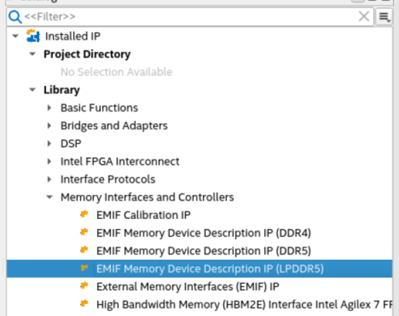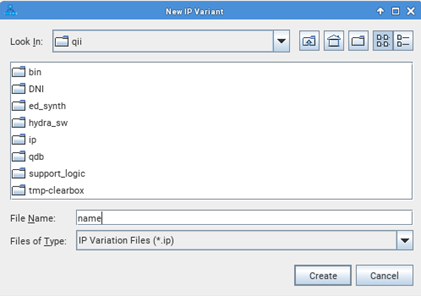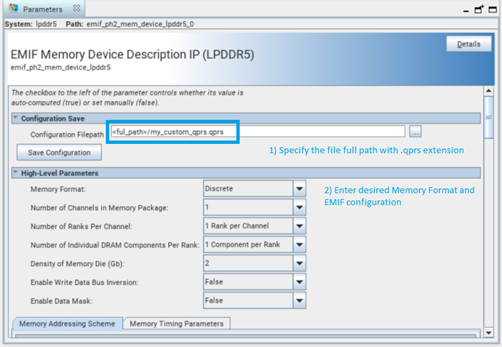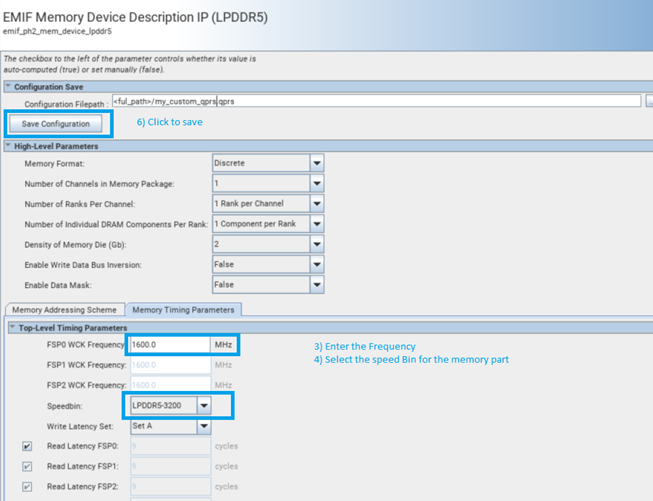Visible to Intel only — GUID: ged1679672472870
Ixiasoft
1. About the External Memory Interfaces Intel Agilex® 7 M-Series FPGA IP
2. Design Example Quick Start Guide for External Memory Interfaces Intel Agilex® 7 M-Series FPGA IP
3. Design Example Description for External Memory Interfaces Intel Agilex® 7 M-Series FPGA IP
4. Document Revision History for External Memory Interfaces Intel Agilex® 7 M-Series FPGA IP Design Example User Guide
2.1. Creating an EMIF Project
2.2. Generating and Configuring the EMIF IP
2.3. Configuring DQ Pin Swizzling
2.4. Generating the Synthesizable EMIF Design Example
2.5. Generating the EMIF Design Example for Simulation
2.6. Pin Placement for Intel Agilex® 7 M-Series EMIF IP
2.7. Compiling the Intel Agilex® 7 M-Series EMIF Design Example
2.8. Generating the EMIF Design Example with the Performance Monitor
2.1.1.3.1. Generating a Custom Memory Preset File for DDR4
2.1.1.3.2. Guidelines for Selecting the DDR4 DRAM Component Package Type
2.1.1.3.3. Generating a Custom Memory Preset File for DDR5
2.1.1.3.4. Guidelines for Selecting the DDR5 DRAM Component Package Type
2.1.1.3.5. Generating a Custom Memory Preset File for LPDDR5
2.3.1. Example: DQ Pin Swizzling Within DQS group for x32 DDR4 interface
2.3.2. Example: Byte Swizzling for a x32 DDR4 interface, using a memory device of x8 width
2.3.3. Combining Pin and Byte Swizzling
2.3.4. Example: Swizzling for a x32 + ECC interface
2.3.5. Example: Byte Swizzling for Lockstep Configuration
Visible to Intel only — GUID: ged1679672472870
Ixiasoft
2.1.1.3.5. Generating a Custom Memory Preset File for LPDDR5
To generate a custom preset file for LPDDR5, follow these steps:
- In the IP Catalog, select Memory Device Description IP (LPDDR5).
Figure 15. IP Catalog

- Type a name for the IP instance and click Create.
Figure 16. Creating a New IP Instance

- Refer to the following figures for the steps in creating and saving the custom presets file:
Figure 17. Parameterizing EMIF Memory Device Description IP (LPDDR5) – Part 1
 Figure 18. Parameterizing EMIF Memory Device Description IP (LPDDR5) – Part 2
Figure 18. Parameterizing EMIF Memory Device Description IP (LPDDR5) – Part 2